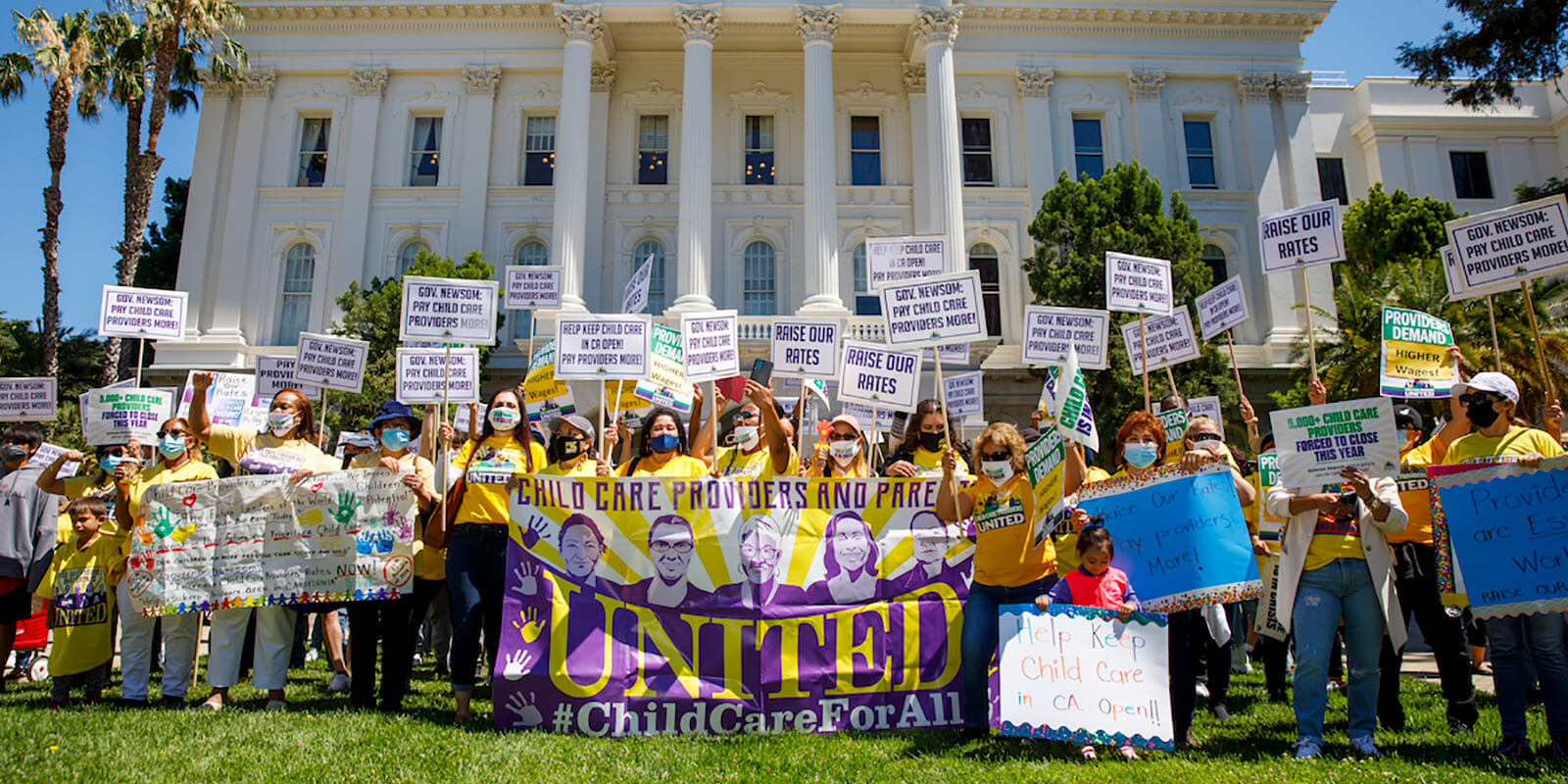LOS ANGELES – AFSCME affiliate Child Care Providers United (CCPU) California achieved the first step of its historic contract-ratification process.
Gov. Gavin Newsom on Friday signed AB 131 into law, legislation that ensures funding for the tentative agreement the women of color-led union forged with the administration in June, along with previously agreed upon COVID-19 investments. This bill is one of several “trailer bills” that make up the state’s recently passed fiscal year 2022 budget.
“As a second-generation child care provider, I am elated that our decades-long fight has made a meaningful difference for providers, the children in our care, and the families who count on us,” said Miren Algorri, a San Diego child care provider and member of the CCPU negotiating team. “We know that access to affordable, quality child care will be essential to the economic recovery from COVID-19 and we applaud Governor Newsom and state legislators for making sure California has funding to support making our child care system the best in the country.”
CCPU brings together 40,000 family child care providers across California and is a partnership of SEIU Local 99, SEIU Local 521, and UDW/AFSCME Local 3930.
By signing the bill, Newsom completed the first part of ratifying the state’s tentative agreement with CCPU. Next, it will be up to CCPU members to finish the second part of the ratification process by voting to ratify the tentative agreement.
If a majority of CCPU members who vote choose to accept the agreement, this consequential first union contract will increase rates for all California child care providers by at least 15% starting in 2022, establish a more formal problem-solving process, and give providers better access to the training they want and need to be successful. The results of the ratification vote will be made public after voting closes on Monday, July 26.
Championed by many members of the state legislature, AB 131 also funds investments that providers have spent decades advocating for, including a sizable increase in subsidized child care slots.
